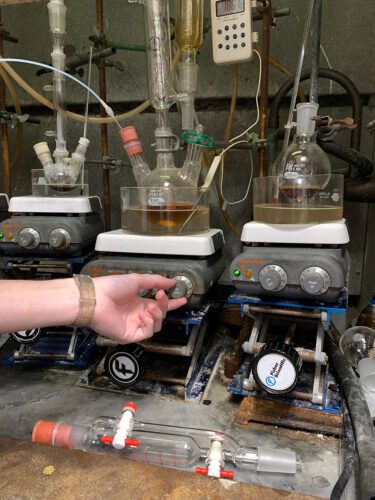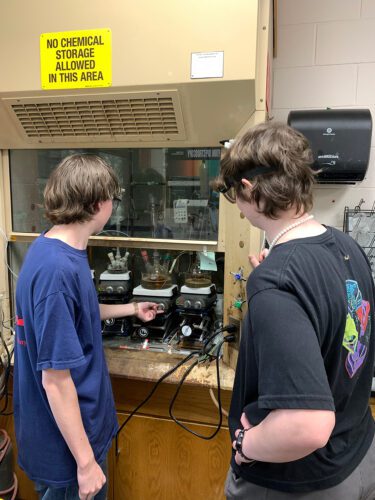Understanding HIV
 Human Immunodeficiency Virus is one of the world’s most infectious and spreadable diseases. Left untreated, it leads to the more deadly Acquired Immunodeficiency Syndrome.
Human Immunodeficiency Virus is one of the world’s most infectious and spreadable diseases. Left untreated, it leads to the more deadly Acquired Immunodeficiency Syndrome.
Researchers at Millsaps College are working to transform treatment options for people with HIV.
The standard treatment to combat HIV is a cocktail of medicines that make it possible to live with the disease, but not cure it. The drugs suppress the virus and prevent the disease from progressing to AIDS. However, drug toxicity, patient tolerability and medication resistance are all issues that can pop up during treatment, making the development of new drugs a constant necessity.
Putting in the Work
Led by chemistry professor Dr. Wolfgang Kramer, students, alongside a network of researchers across the South, are pioneering better treatment options for people with HIV.
 Millsaps researchers are working to interrupt a specific part of the HIV life cycle called integrase. It’s a difficult, time-consuming process with multiple steps and constant checks for accuracy.
Millsaps researchers are working to interrupt a specific part of the HIV life cycle called integrase. It’s a difficult, time-consuming process with multiple steps and constant checks for accuracy.
“We’re working on perfecting the desired chemical compounds. It is a challenging project for an undergraduate lab, but we’re working hard and learning a lot to make progress,” Kramer said.
These inhibitors are key to stopping HIV from incorporating its genes into human cells. Millsaps student researchers are working to break the chain of infection at its core.
Students at the Heart
Millsaps students are key to this study. Freshmen Viv Jordan and Junior Tyler Twedt are part of the team researching as they work toward finessing the desired inhibitor.
 Jordan says it’s cool to take part in real scientific research, “I’m not yet intimately familiar with organic chemistry, but Dr. Kramer and Tyler take that with stride. Not only are my abilities now seen and recognized but my potential is as well. The potential for changing the world is in everything we do.”
Jordan says it’s cool to take part in real scientific research, “I’m not yet intimately familiar with organic chemistry, but Dr. Kramer and Tyler take that with stride. Not only are my abilities now seen and recognized but my potential is as well. The potential for changing the world is in everything we do.”
Hands-on learning and research are a core part of the Millsaps mission. Every student has access to unique learning opportunities in the classroom, in labs and in the field.
With medical school on his radar, Twedt says the ability to conduct real-world research as an undergraduate makes him feel more prepared for his future. “Hands-on experience has been crucial for shaping my analytical skills and fostering a scientific mindset, both of which are invaluable for my future. Knowing that my research has real-world implications and meaningful impact gives me a profound sense of purpose,” he said. “I have learned the importance of curiosity, persistence and critical thinking, empowering me to solve complex problems and contribute to the advancement of science.”
A Major Difference
A level of research that is typically reserved for graduate school, incredible opportunities like this are what sets Millsaps students apart.
HIV and AIDS account for around 600,000 deaths a year, but it doesn’t have to be that way. This research remains a work in progress, but our dedicated researchers are working for a brighter future and better healthcare for all.
